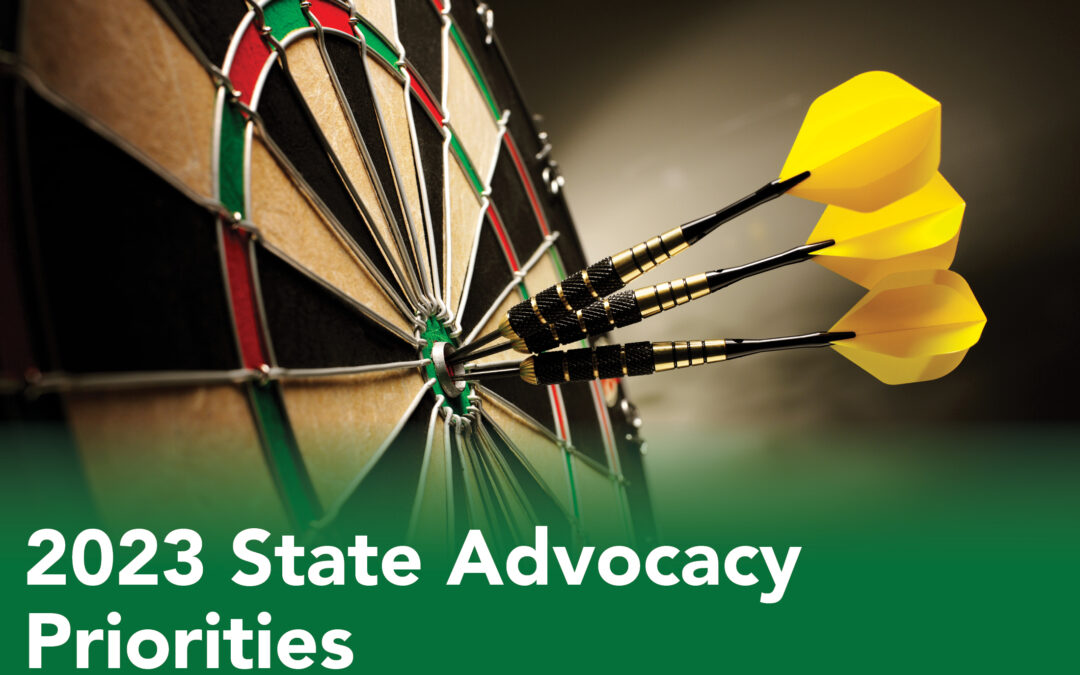CAI state government affairs efforts are a member-driven, targeted advocacy program dedicated to improving policy outcomes for the community association housing model.
To help determine our 2023 priority issues, the CAI Government & Public Affairs team surveyed nearly 1,000 CAI members including the federal legislative action committee (LAC), Government & Public Affairs Committee, and state LAC representatives. The survey, which generated responses from 25 states and the District of Columbia, requested that respondents rank issues.
Almost 50% of respondents say they anticipate condominium safety issues in 2023, including proposals that cover:
Reserve studies and funding. CAI recommends statutorily mandating reserve studies and funding for all community associations. CAI recommends additional requirements by developers during the development process and prior to transition to homeowners.
Building inspections, maintenance, and structural integrity. CAI worked closely with developers on these recommendations. Structural integrity is addressed through statutorily mandated building inspections at 10 years, 20 years, and every five years thereafter. Inspections are based on the American Society of Civil Engineers’ published protocol for building inspections.
Full public policy positions for condominium safety may be found at www.condosafety.com and www.caionline.org/condosafety.
A large portion of the legislation CAI monitors covers community association housing model trends such as community values, rentals, board authority, and more.
Community values: i.e., solar panels, electric vehicle charging stations, landscaping requirements, etc. 42% of respondents believe community associations should be allowed to develop reasonable rules that are based on community values.
Short- and long-term rentals. CAI encourages policymakers to engage industry stakeholders, including community associations, when crafting regulations in an open and transparent manner, and provide the opportunity for comment. A board of directors, with homeowner input, is the appropriate governing body to craft policies regarding whether short- and long-term rentals are appropriate for their community.
Board authority. Community association leaders have a legal and ethical obligation to adhere to the association’s governing documents and abide by all applicable laws. Boards should have the authority to set expectations of owners and nonowner residents to meet their financial obligations to their community association. It is important for board members to balance the needs and obligations of the community with those of individual homeowners and residents.
Response to threats and violence against managers, staff members, and association boards. CAI is committed to discussing public policy options, training programs, resources, and support to ensure senseless acts of violence do not occur.
Simplified process for removing discriminatory restrictive covenants. CAI supports a process to remove antiquated and unenforceable discriminatory restrictions contained in covenants without a vote of owners. CAI advocates for state legislation that provides for removal of restrictions deemed discriminatory under the federal Fair Housing Act or state antidiscrimination laws.




SCREW you for lobbying against solar panels rights in NC! I am so glad you lost! I am an HOA president and I will never ever join your organization, or hire any lawyer that is CAI approved, especially not law firms carolinas who wrote the amacus brief.
https://www.caionline.org/Advocacy/LegalArena/Amicus/Documents/2021/Belmont%20Association%2C%20Inc.%20v.%20Thomas%20Farwig%20Amicus%20Brief%20FINAL.pdf
stop mandating evil CCR regulations that limit people’s freedoms!